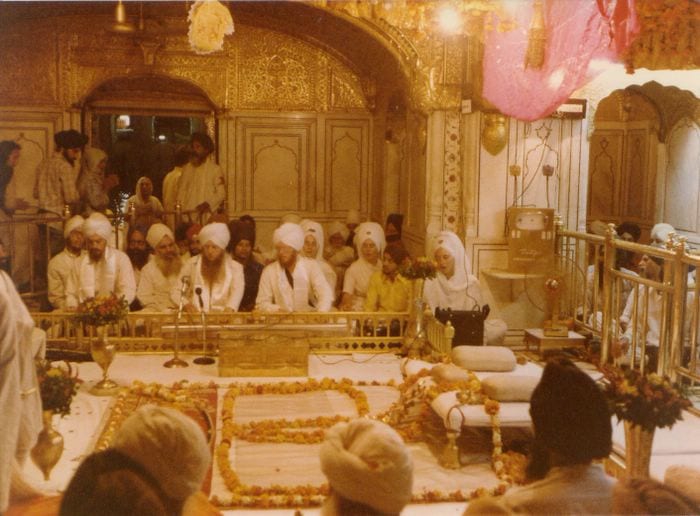ਸਿਮਰਨੁ (simran)
Meaning: noun: Remembrance (of the Divine).
Quote:
ਪ੍ਰਭ ਕਾ ਸਿਮਰਨੁ ਸਭ ਤੇ ਊਚਾ॥
prabh kaa simran sabh te oochaa.
The remembrance of the Divine is the highest of all (religious practices). – Guru Arjan Sahib, Guru Granth Sahib, 263
Message: Gurbani places primary importance on remembering the Divine at all times. It is one of the deepest and richest concepts in Gurbani, and it is no wonder that one needs to understand the knowledge and wisdom associated with it in the Guru Granth Sahib.
In Gurbani, simran means remembering the Divine within one’s mind or keeping our mind attached to the Divine all the time. This is the highest form of meditation to enable one to merge with the Divine. It purifies the mind. Vices and destructive emotions like lust, greed, vanity and attachment to material possessions gradually diminish as one becomes increasingly aware of the Creator’s presence everywhere and in everything. This results in permanent peace, tranquility and spiritual development.
The implication of Gurbani’s definition on meditation is profound: Simran is not meditation in isolation or confinement, nor is it bound by time, place, posture, breathing technique, or any other external variable. Anything, that is external or outside of the inner spirituality is considered a ritual and is rejected in Gurbani. Simran is the process of imbibing true knowledge enshrined in the Guru Granth Sahib until one’s nature transforms from selfishness to altruism and one begins to practise virtues like truth, contentment, and compassion, etc. which leave a lasting impression on the soul or conscience.
As long as there is a lack of the inner discipline that brings calmness of mind, no matter what external facilities or conditions you have, they will never give you the feeling of joy and happiness that you are seeking. On the other hand, if you possess this inner quality, a calmness of mind, a degree of stability within, then even if you lack various external facilities that you would normally consider necessary for happiness, it is still possible to live a happy and joyful life. –Dalai Lama
Etymology: From Sanskrit smaraṇ (remembering, memory) → Pali → Prakrit samaraṇ (remembrance, recollection) → Gurbani simaran.
Comparable to Sanskrit smarati, verb (longs for, loves, remembers).




